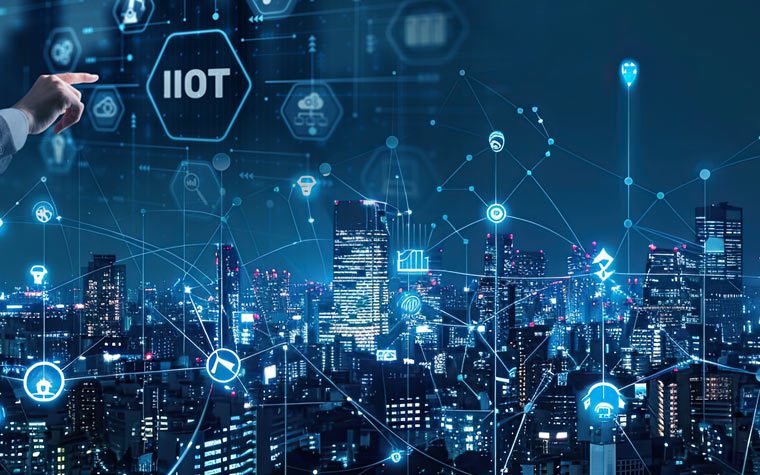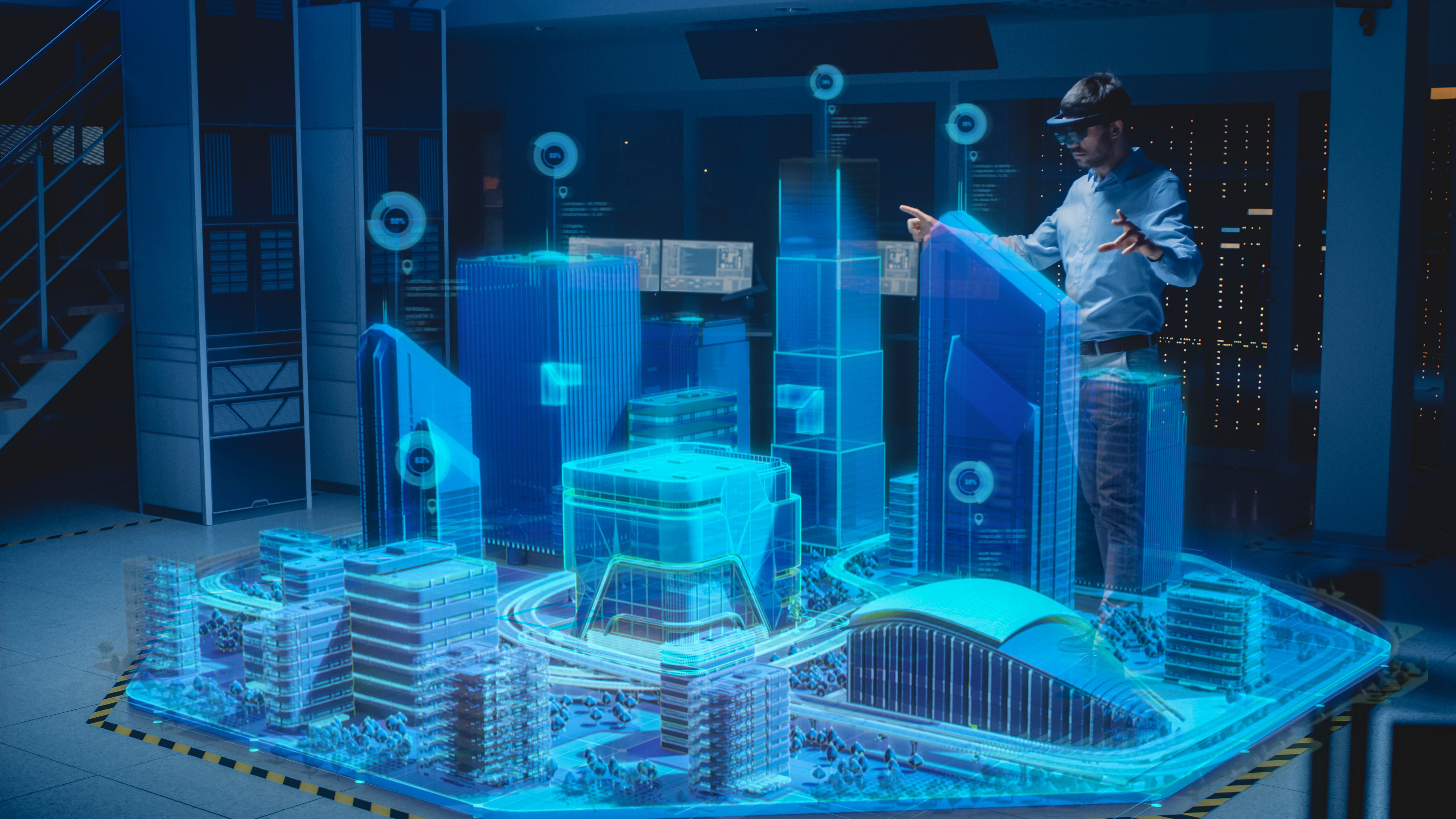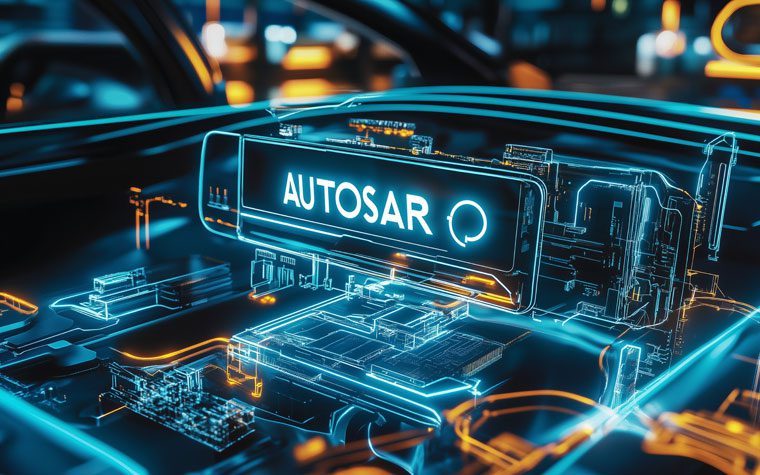
Understanding the Role of IIoT in Smart City Initiatives
In the relentless march towards urbanization, cities worldwide face unprecedented challenges ranging from population growth and resource constraints to environmental sustainability and public safety. To address these challenges and unlock the potential of urban living, city planners and policymakers are turning to innovative solutions powered by the Industrial Internet of Things (IIoT).
By harnessing the power of connected devices, real-time data analytics, and intelligent automation, IIoT is revolutionizing smart city initiatives, paving the way for safer, more efficient, and sustainable urban environments.
The Essence of Smart Cities
At the heart of smart city initiatives lies the vision of leveraging technology to enhance the quality of life for citizens, improve urban infrastructure, and foster economic growth. Smart cities integrate information and communication technologies (ICT) with physical infrastructure to optimize resource utilization, enhance public services, and promote environmental sustainability.
From smart transportation and energy management to waste reduction and public safety, smart city initiatives encompass a wide array of domains aimed at creating resilient and livable urban environments.
The Convergence of IIoT and Smart Cities
The blend of IIoT and smart city initiatives represents a natural evolution in the quest for urban innovation. IIoT technologies, which enable the connectivity of industrial devices and systems, provide a robust foundation for building smart city ecosystems. By deploying sensors, actuators, and other connected devices across urban infrastructure, cities can collect vast amounts of real-time data on various parameters such as traffic flow, air quality, energy consumption, and waste management.
Transforming Urban Mobility
Transportation lies at the core of urban life, and smart cities are leveraging IIoT technologies to revolutionize mobility solutions. Intelligent transportation systems (ITS) equipped with sensors and data analytics enable real-time monitoring of traffic conditions, optimized routing, and dynamic traffic management. Smart parking solutions powered by IIoT sensors guide drivers to available parking spaces, reducing congestion and emissions while enhancing the overall urban mobility experience.
Enhancing Public Safety and Security
Safety and security are paramount concerns for urban residents, and IIoT plays a crucial role in enhancing public safety measures. Video surveillance systems equipped with AI-powered analytics enable proactive threat detection and rapid response to emergencies. Smart street lighting systems equipped with motion sensors and adaptive controls improve visibility and deter crime while conserving energy. Additionally, IoT-enabled emergency response systems facilitate quick and coordinated responses to incidents, ensuring the safety and well-being of citizens.
Promoting Environmental Sustainability
Environmental sustainability is a key pillar of smart city initiatives, and IIoT technologies are instrumental in promoting eco-friendly practices. Smart energy management systems optimize energy distribution, reduce wastage, and promote the integration of renewable energy sources into the grid. Environmental monitoring networks equipped with IoT sensors track air and water quality, enabling early detection of pollution and informing policy decisions to mitigate environmental risks. Furthermore, smart waste management solutions optimize waste collection routes, minimize landfill usage, and promote recycling and composting practices, contributing to a cleaner and greener urban environment.
Fostering Economic Growth and Innovation
Smart city initiatives powered by IIoT technologies create new opportunities for economic growth and innovation. By attracting investment in digital infrastructure and fostering collaboration between government, industry, and academia, smart cities stimulate entrepreneurship, job creation, and economic development.
Moreover, the data generated by IIoT-enabled systems serves as a valuable resource for urban planners, businesses, and researchers, enabling evidence-based decision-making, innovation, and the development of new products and services.
Overcoming Challenges and Driving Adoption
While the potential benefits of IIoT in smart city initiatives are undeniable, several challenges must be addressed to realize its full potential. These include:
- Privacy and Data Security: Ensuring the privacy and security of citizen data collected by IIoT devices is paramount to building trust and fostering adoption.
- Interoperability and Standards: Promoting interoperability and establishing common standards for IIoT devices and systems is essential to enable seamless integration and scalability across smart city infrastructure.
- Digital Divide: Addressing the digital divide and ensuring equitable access to IIoT-enabled services is crucial to prevent widening socio-economic disparities in smart cities.
- Sustainability and Resilience: Building resilient and sustainable smart city infrastructure that can withstand environmental and economic challenges is essential to ensure long-term success and viability.
As we look to the future, the convergence of IIoT and smart city initiatives will continue to drive urban innovation and transformation. Advances in sensor technology, data analytics, and connectivity will further enhance the capabilities of smart city ecosystems, enabling cities to become more responsive, resilient, and sustainable. By harnessing the power of IIoT, smart cities will unlock new opportunities for economic growth, improve quality of life for citizens, and create a more inclusive and prosperous urban future.
Thus, the application of IIoT in smart city initiatives represents a paradigm shift in urban planning and development. By leveraging connected devices, real-time data analytics, and intelligent automation, smart cities are redefining the way we live, work, and interact with our urban environments. As cities continue to evolve and embrace digital transformation, IIoT will play an increasingly vital role in shaping the cities of tomorrow, driving innovation, sustainability, and prosperity for generations to come.


